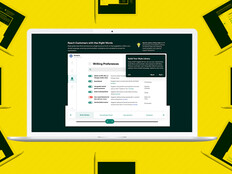State-Led Healthcare Pilots Seek to Demonstrate the Value of Blockchain
While you have likely heard of bitcoin, the ledger technology that underlies this digital currency could end up being a lot more valuable to industries everywhere, especially in the health field. Blockchain is a “data structure that can be timed-stamped and signed using a private key to prevent tampering,” according to the Office of the National Coordinator for Health IT, and it is emerging through pilots and partnerships with the potential to solve some of health’s major IT challenges.
“Blockchain technology has the potential to transform health care, placing the patient at the center of the health care ecosystem and increasing the security, privacy, and interoperability of health data. This technology could provide a new model for health information exchanges (HIE) by making electronic medical records more efficient, disintermediated, and secure,” says a new Deloitte study on bitcoin’s potential impact.
While the study notes that the technology is certainly not a cure-all for the issues plaguing the healthcare industry, it is opening the door for experimentation and proof-of-concept testing as to ways to improve, particularly as blockchain tools evolve with the help of companies like Microsoft.
According to a recent IBM study, of 200 surveyed payer and provider healthcare executives, 16 percent expect to have a commercial blockchain solution at scale this year.
Most are seeing the technology as a way to connect disparate bits of information from across the healthcare ecosystem into a single profile for a patient.
And while many in the healthcare field are willing to test and field the technology, states are taking the lead in piloting the tech for medical use.
Delaware Blockchain Pilot Streamlines Medicaid Preauthorization
Through a partnership with the Delaware Blockchain Initiative and healthcare technology company Medscient, the Medical Society of Delaware has launched a program that aims to “address the challenges that prior authorization requirements pose to patients and healthcare providers,” according to a press release.
The program aims to eventually move out of the pilot phase and into the system statewide in order to reduce the delays and expenses associated with the Medicaid prior authorization system.
“The distributed ledger is a transformative technology that offers a definitive solution to the problem of pre-authorization that can benefit all parties — patients, doctors, nurses, hospitals and insurers,” said MSD Vice President Andrew Dahlke.
The technology will smooth the preauthorization process by giving both payers and providers a common platform on which to view a patient’s data.
“Essentially, we are negotiating the ‘metrics of trust’ between the parties,” says Vince Albanese, CEO of Medscient. “We are coding agreed-upon rules of pre-authorization in smart contracts that will in turn execute decisions that all parties can agree are appropriate and correct.”
Illinois Launches Blockchain to Simplify Provider Licensing
Meanwhile, in August, the Illinois Blockchain Initiative announced its partnership with blockchain healthcare company Hashed Health to leverage blockchain and distributed ledger technologies to improve “the efficiency and accuracy of the medical credentialing process in Illinois,” according to a press release.
It will use a blockchain-based registry to more easily share medical credential data and smart contracts to “automate workflow related to multistate and interstate licensure.”
In the short term, the pilot aims to cut back on the complexity of the licensing process and reduce both the workload and time necessary to license healthcare providers in Illinois. Longer term, the state looks to prove that the technology can help licensing boards better and more securely manage provider credentials on a national scale.
“Illinois is committed to moving beyond the much discussed promise of distributed ledger technologies. With this pilot we plan to bring tangible solutions that solve real problems,” says Jennifer O’Rourke, blockchain business liaison for the Illinois Blockchain Initiative, in the press release. “We are excited to explore how distributed ledger technology can improve current bottlenecks in the medical licensing process and hope to share our learnings with other state boards and entities interested in collaborating on this project going forward.”









